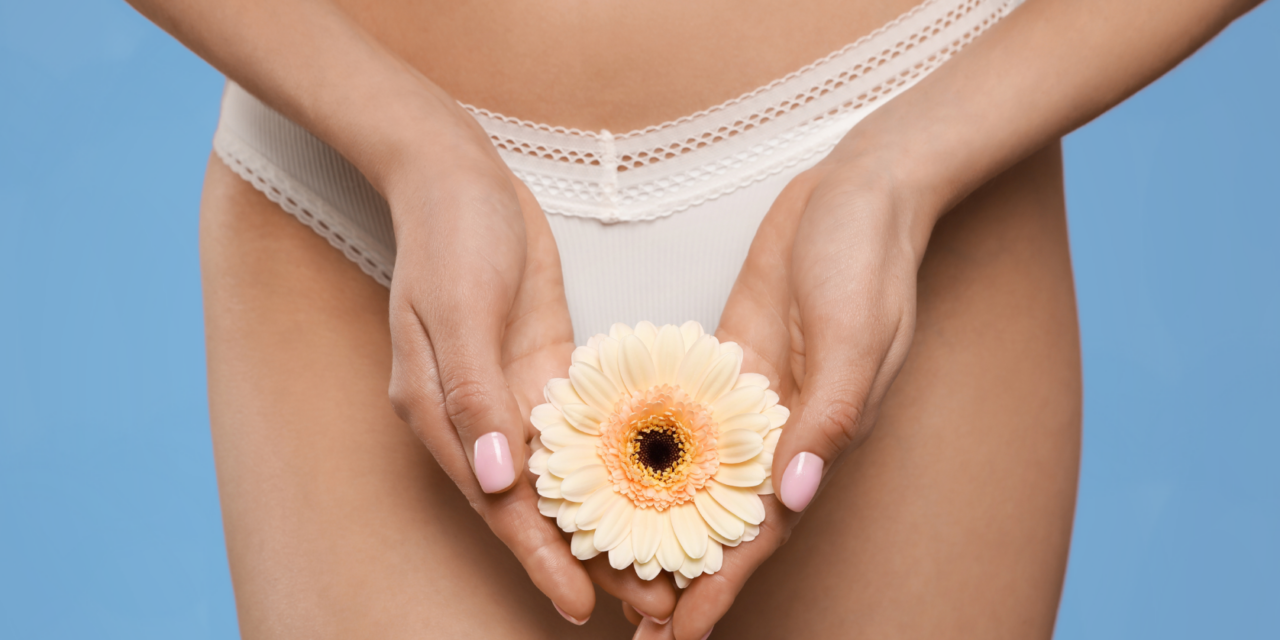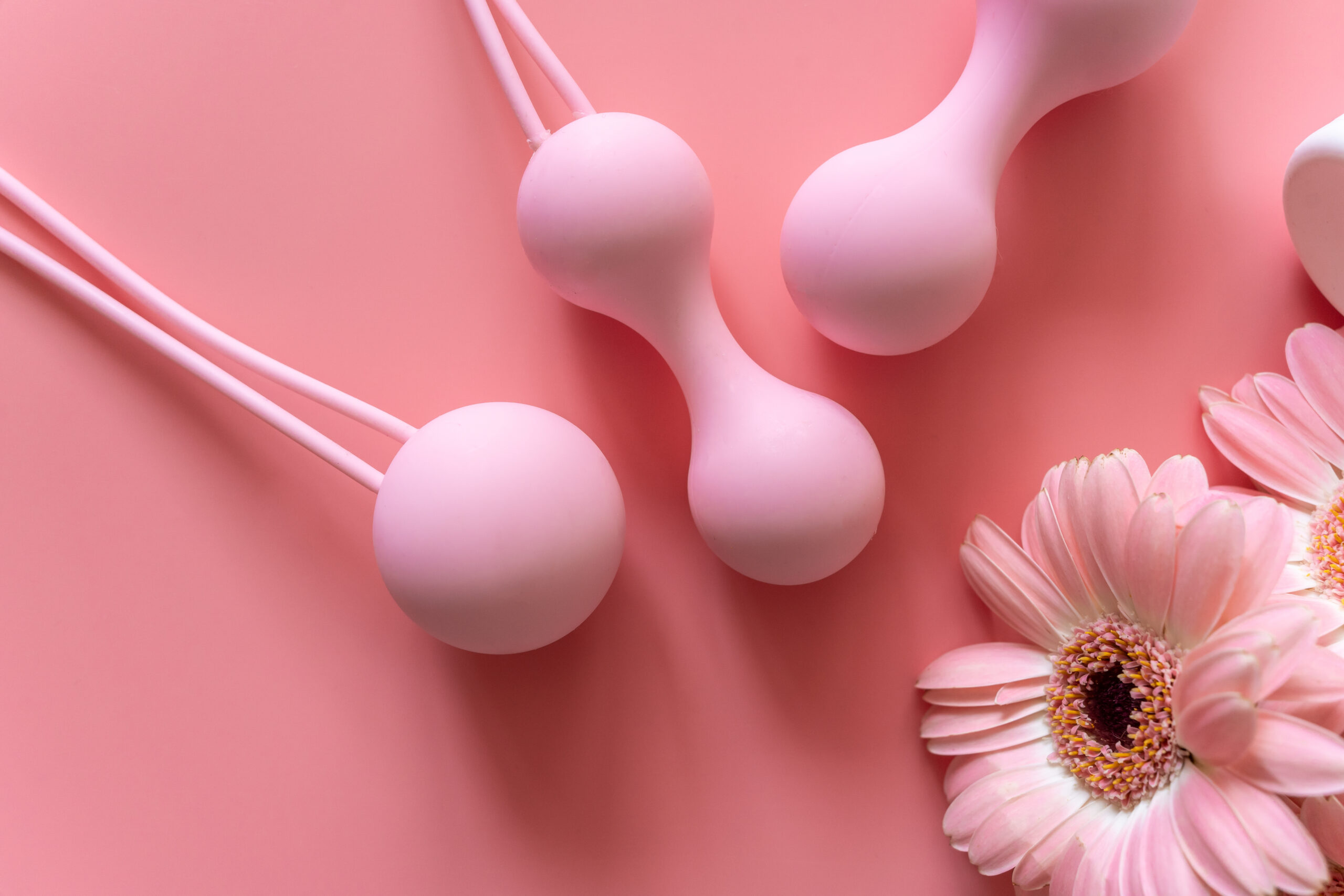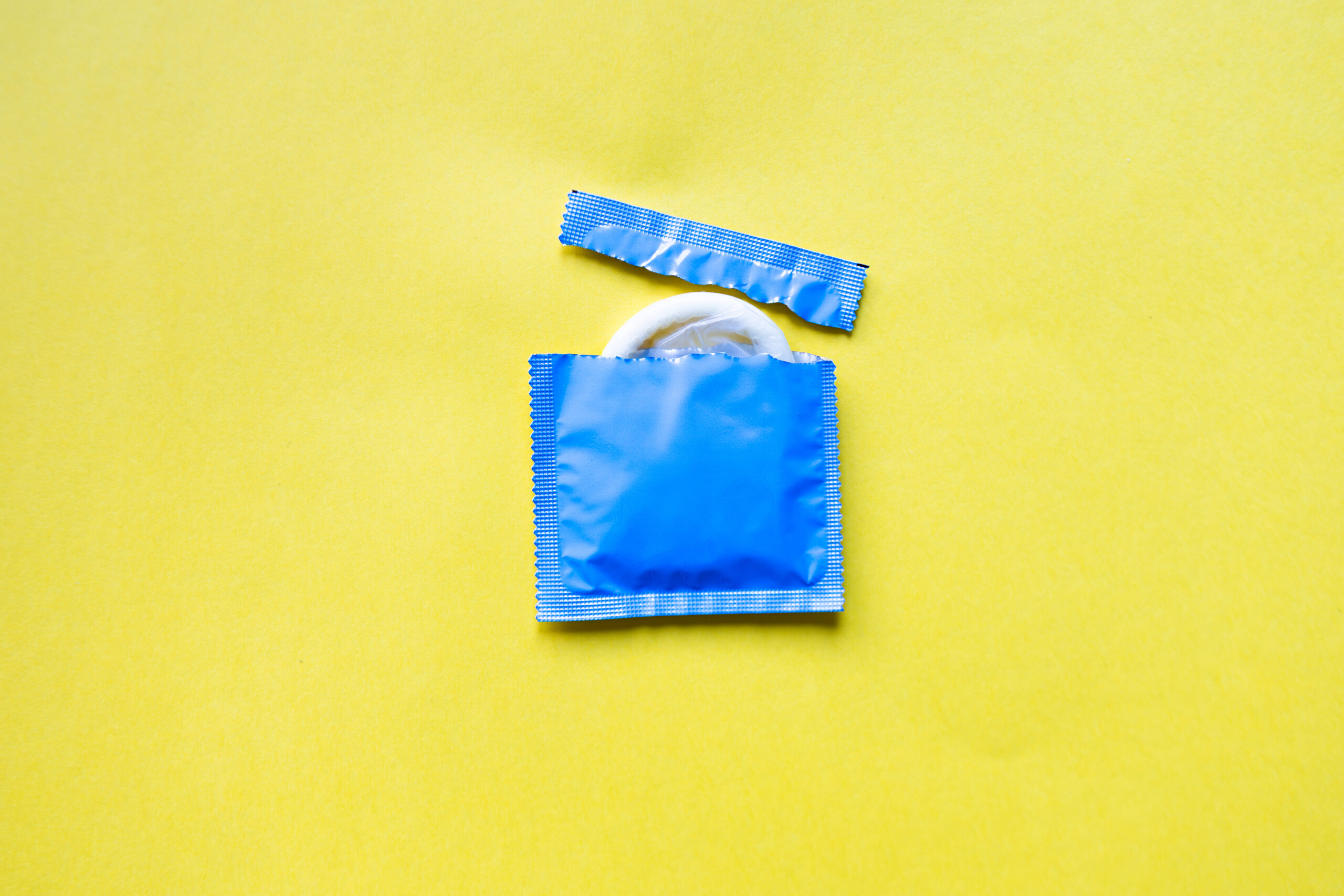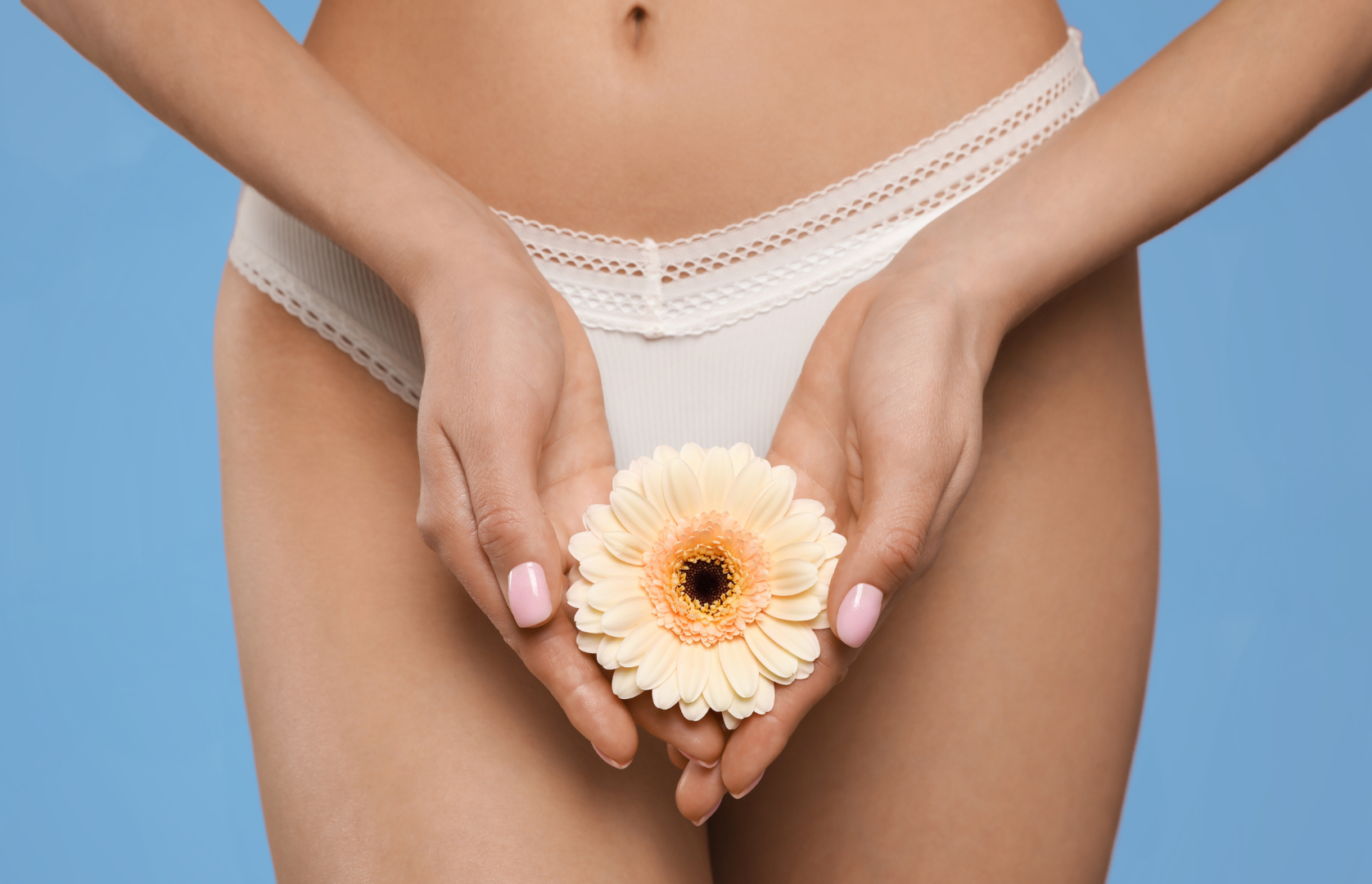Hello, lovely humans! Welcome to our cheeky little guide on keeping your nether regions neat and tidy. Buckle up, buttercup – we’re about to get up close and personal with your personal care routine!
Why All the Fuss About Fuzz?
Let’s face it: our intimate areas are like the VIPs of our body. They deserve the royal treatment, and that starts with understanding why proper care is so darn important. Feminine hygiene is crucial, involving daily cleaning practices and the use of pH-balanced feminine washes. It’s not just about smelling like a field of daisies (though that’s a nice bonus). It’s about maintaining the delicate ecosystem down there and keeping everything in harmony.
The pH Party: Keeping Vaginal Hygiene Balanced
Think of your intimate area as a fancy cocktail party. The pH level is like the perfect mix in your favorite drink – get it right, and everything’s groovy. For the vagina-owners out there, we’re talking about a slightly acidic environment (around 3.8 to 4.5 on the pH scale). This acidity is your body’s bouncer, keeping the bad bacteria out and the good bacteria living their best life. Maintaining this pH balance supports the normal vaginal flora, which is essential for preventing infections.
For the penis-wielders, your pH is a bit more neutral, but it still needs attention to prevent any unwanted guests from crashing the party.
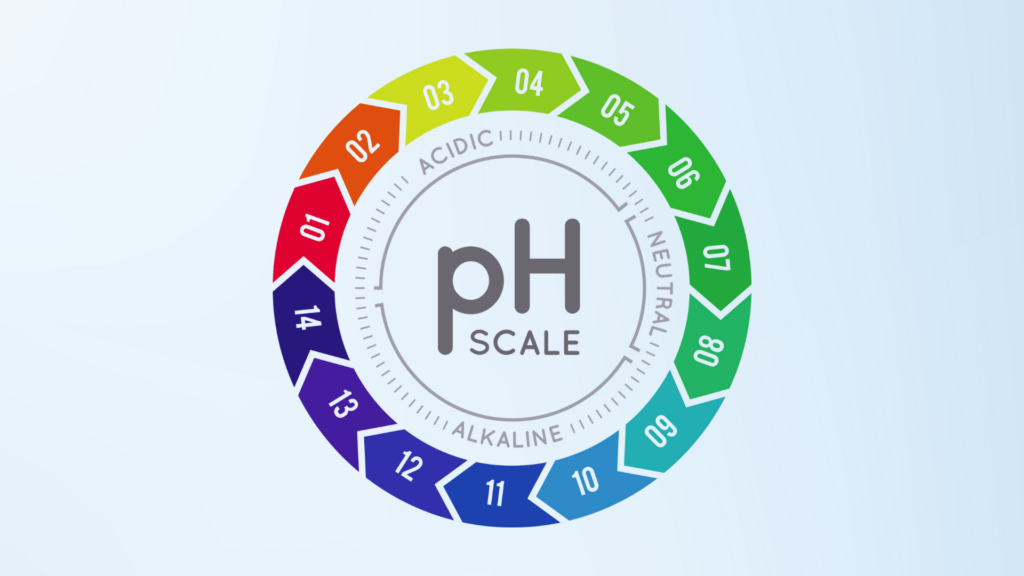
Myth Busters: Intimate Edition
Time to bust some myths wide open, folks!
Myth:
Truth
Myth:
Truth
Myth:
Truth
Myth:
Truth
Hygiene Products That’ll Make Your Privates Sing
Now, let’s talk about the tools of the trade:
Feminine hygiene products are essential for maintaining vulvovaginal health and hygiene practices globally.
For the V-Team:
Gentle, pH-Balanced Washes: Look for washes specifically formulated for vulvar hygiene. Good feminine hygiene keeps your intimate area clean without disrupting its natural flora. Additionally, it helps prevent yeast infections.
Organic Cotton Tampons and Menstrual Pads: Opt for organic cotton products to reduce exposure to harmful chemicals and fragrances during your menstrual cycle. They’re softer on your skin and better for the environment!
Menstrual Cups: Consider using a menstrual cup as a sustainable alternative to pads and tampons. They can be worn for up to 12 hours and are reusable, making them eco-friendly and cost-effective.
Intimate Wipes: Keep some pH-balanced intimate wipes in your bag for quick freshen-ups during the day or after workouts. They’re perfect for those moments when you need a little extra care.
Vaginal Probiotics: Some women find that taking probiotics specifically designed for vaginal health can help maintain a balanced flora, especially after antibiotics or during hormonal changes.
Soothing Creams or Gels: If you experience dryness or irritation, look for creams or gels that contain natural ingredients like aloe vera or coconut oil to soothe and moisturize the vulvar area.
Feminine Deodorants: If you feel you need a little extra freshness, opt for gentle, unscented feminine deodorants designed specifically for the vulvar area. Avoid using regular deodorants, which can cause irritation.
Regular Check-Ups: Don’t forget the importance of regular gynecological check-ups! Keeping up with your appointments ensures that any potential issues are caught early, allowing you to maintain optimal vaginal health.
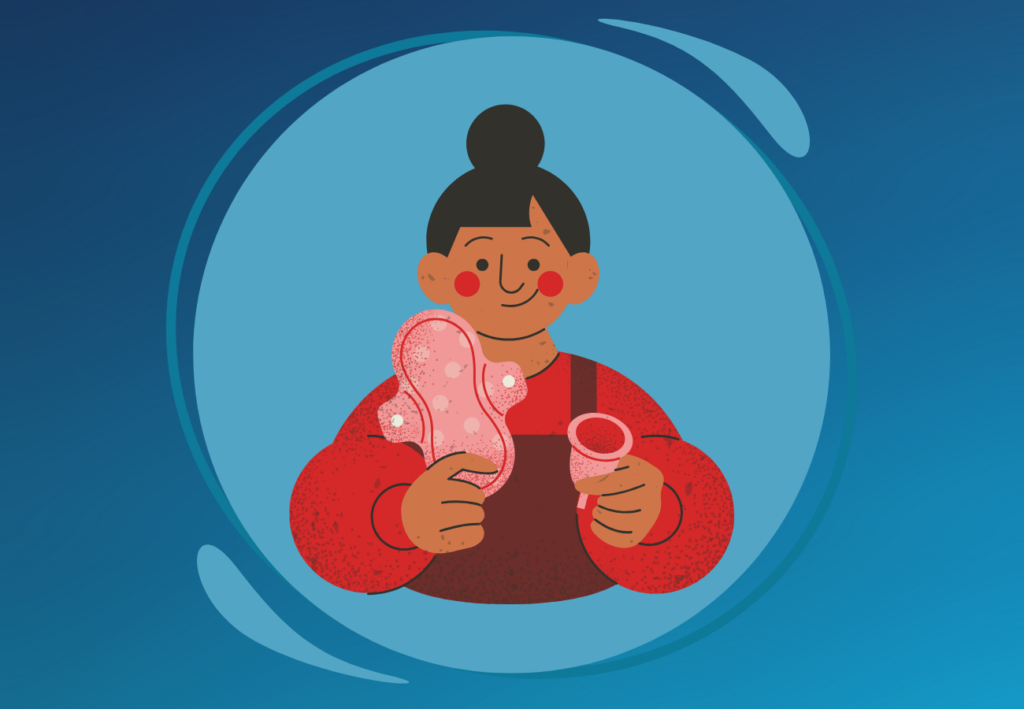
For the P-Team
Moisture-Wicking Underwear: Invest in breathable, moisture-wicking underwear to keep things dry and fresh throughout the day. Boxers are looser and more comfortable than briefs.
Intimate Wipes: Keep some pH-balanced wipes handy for quick refreshes, especially after workouts or during long days. DUDE Wipes are unscented and contain Vitamin-E & Aloe. They’re also septic and sewer safe.
pH-Balanced Washes: Seek out washes designed specifically for your manly bits. Look for products that maintain the natural pH balance of your intimate area
Antibacterial Properties: Choose products with antibacterial properties to keep the funk at bay and prevent unwanted odors.
Trimming Tools: Invest in quality trimming tools for manscaping to maintain hygiene without causing irritation.
Antifungal Sprays: Keep an antifungal spray on hand to prevent and treat common issues like jock itch.
Gentle Exfoliating Scrubs: Occasionally use a gentle exfoliating scrub to remove dead skin cells and prevent ingrown hairs.
Soothing Balms: Apply soothing balms or creams to prevent irritation from shaving or friction. We recommend Ball Barrier Dry Lotion by Dr. Squatch.
Talc-Free Powders: Use talc-free powders to absorb excess moisture and reduce chafing in the groin area.

For Everyone:
Mindful Sexual Practices: Engage in safe sex practices, including using condoms, to reduce the risk of sexually transmitted diseases (STDs) and maintain vaginal health.
Post-Sexual Hygiene: After sexual intercourse, consider urinating and gently cleansing the genital area to help prevent UTIs and upper genital tract infections.
Regular Hygiene Routine: Establish a consistent daily hygiene routine that includes gentle cleansing of the genital skin to maintain cleanliness and freshness.
Hydration: Drink plenty of water! Staying hydrated supports overall health, including maintaining healthy vaginal and urinary tract function.
Dietary Considerations: Incorporate a balanced diet rich in probiotics (like yogurt or fermented foods) to support healthy flora and overall gut health.
Stress Management: Practice stress-reducing activities like yoga or meditation. Stress can impact hormonal balance, which in turn can affect vaginal health.
Educate Yourself: Stay informed about your body and its needs. Knowledge is power when it comes to understanding your intimate health and recognizing any changes that may require attention.
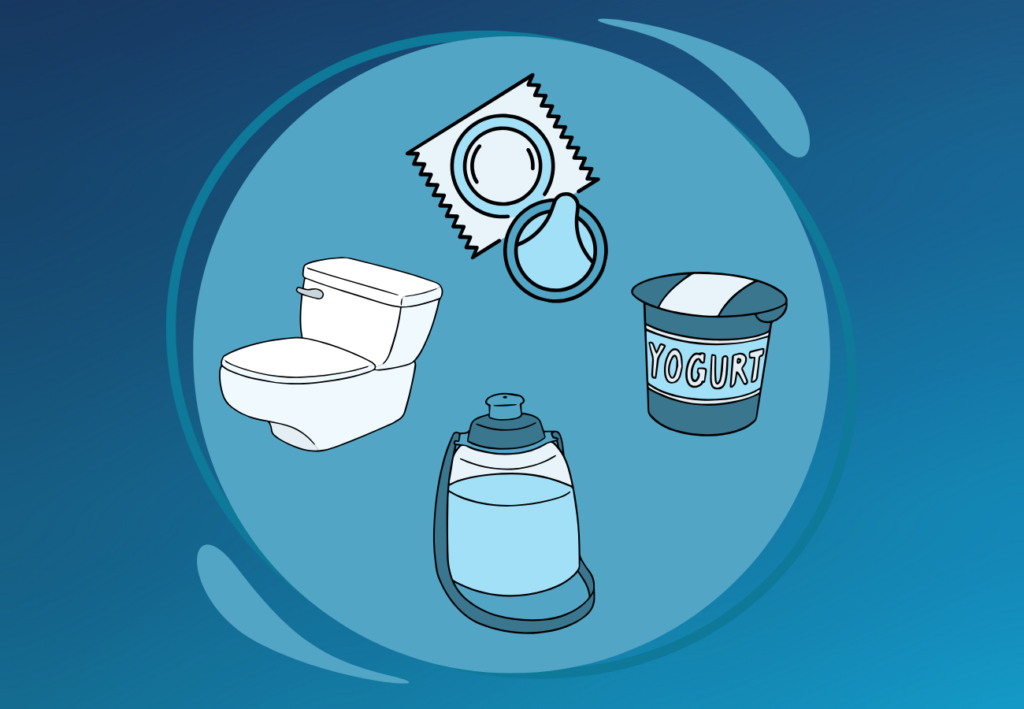
Navigating Intimate Changes: Pregnancy and Menopause
Pregnancy and menopause are two significant life stages that bring about unique changes to your intimate health. Let’s dive into how these transitions affect your body and what you can do to maintain comfort and hygiene during these times.
Pregnancy: A Time of Transformation
During pregnancy, your body undergoes remarkable changes to support the growing life within. Here’s what you need to know about maintaining vaginal health during this special time:
Hormonal Shifts: Increased estrogen and progesterone levels can lead to a higher risk of yeast infections. Stay vigilant for symptoms like itching, redness, or unusual discharge.
pH Balance: The vaginal pH may fluctuate, potentially increasing the risk of BV. Don’t over-clean.
Increased Discharge: It’s normal to experience more vaginal discharge during pregnancy. This is your body’s way of maintaining cleanliness and preventing infections.
Blood Flow Changes: You may notice a bluish tint to your vulva due to increased blood flow, which is perfectly normal.
Varicose Veins: Some women develop vulvar varicosities. While they may be uncomfortable, they typically resolve after delivery.
Group B Strep: Your healthcare provider will test for this bacteria late in pregnancy, as it can affect the baby during birth.
Menopause: Embracing New Normals
As you transition into menopause, your body experiences significant changes that can affect vaginal health:
Estrogen Decline: Lower estrogen levels can lead to vaginal dryness and thinning of the vaginal walls. Consider using moisturizers or lubricants to maintain comfort.
pH Changes: The vaginal pH becomes less acidic, which can increase the risk of infections. Pay extra attention to hygiene and consider probiotics to support vaginal health.
Urinary Changes: You may experience urinary incontinence or increased urinary tract infections. Kegel exercises can help strengthen pelvic floor muscles.
Vulvar Health: The vulvar skin may become more sensitive. Use gentle, fragrance-free products and consider wearing breathable, cotton underwear.
Libido Changes: Hormonal shifts can affect sexual desire. Open communication with your partner and healthcare provider can help address any concerns.
Remember, every woman’s experience is unique. What’s most important is to listen to your body, maintain open communication with your healthcare provider, and embrace these natural life transitions with confidence and care.
Fitness Enthusiasts: Keeping UTIs at Bay While Staying Active
For all you gym-goers and fitness fanatics out there, maintaining your intimate health is just as important as hitting your workout goals. Here’s how to keep urinary tract infections (UTIs) at bay while staying active:

Pre-Workout Prep
Empty First: Always empty your bladder completely before starting your workout. This reduces the chance of bacteria multiplying in retained urine.
Warm-Up Wisely: Start your workout with a gentle warm-up that includes stretching and light movements. This not only prepares your muscles but also encourages blood flow, which can help your body function better overall, including urinary health.
During your sweat session
Listen to Your Body: If you feel the urge to urinate, don’t ignore it. Take a quick break to use the restroom.
Avoid Shared Equipment: Use a personal yoga mat or towel when using shared gym equipment to minimize contact with bacteria.
Post-Workout Care
Quick Change: Don’t linger in damp workout clothes. Change into dry, clean clothes as soon as possible after your workout.
Shower Smart: If you can’t shower immediately, use pH-balanced cleansing wipes designed for intimate areas to freshen up.
Replenish Electrolytes: Consider a sugar-free electrolyte drink to replace what you’ve lost through sweat without feeding bacteria.
Proper hygiene practices, such as wiping from front to back, are crucial in preventing infections like a urinary tract infection after workouts.
Gear and Gadgets
Smart Water Bottles: Invest in a water bottle with time markers to ensure you’re staying hydrated throughout your workout and the day.
Antimicrobial Gym Bags: Consider using gym bags with antimicrobial properties to reduce bacterial growth on your gear.
By incorporating these strategies into your fitness routine, you can maintain your workout intensity while keeping your urinary tract healthy. Remember, a healthy body includes a healthy bladder, so give it the same attention you give your muscles!
Jet-Setters: Maintaining Intimate Health on the Go
For those who frequently find themselves hopping from one time zone to another, maintaining intimate hygiene can be a unique challenge. Here’s how to keep things fresh and healthy while globetrotting:
Travel-Sized Arsenal: Curate a compact kit of travel-sized intimate hygiene products that meet airline regulations. Include pH-balanced wipes, a gentle cleanser, and a small moisturizer.
Adapt to Local Water: Be cautious with unfamiliar water sources. When in doubt, use bottled water for intimate cleansing or opt for pre-moistened wipes.
Combat Jet Lag: Disrupted sleep patterns can affect your body’s natural rhythms. Stick to your usual hygiene routine to maintain a sense of normalcy.
Mindful Eating: Unfamiliar cuisines can sometimes upset your digestive system. Pay attention to how different foods affect you and adjust accordingly to maintain your intimate health balance.
Portable Bidet: Consider a travel bidet for thorough cleansing when bathroom facilities are less than ideal.
Time Zone Transitions: If you’re on medication that affects your intimate health, consult your doctor about adjusting dosage times when crossing time zones.
By incorporating these travel-savvy tips into your jet-setting lifestyle, you can maintain your intimate health no matter where your adventures take you.
Your Intimate Wellness Journey
Embarking on a journey of intimate wellness is a personal and empowering experience. Here’s a comprehensive guide to help you navigate this important aspect of your health:
Morning Rituals
Start your day with a gentle cleanse using lukewarm water and, if needed, a pH-balanced intimate wash.
Pat dry thoroughly with a clean, soft towel to prevent moisture buildup.
Daytime Habits
Stay hydrated by drinking plenty of water, which supports urinary tract health.
Practical feminine hygiene tips suggest daily washing as a crucial aspect of maintaining intimate hygiene, especially for young girls experiencing puberty.
If you exercise, bathe as soon as you can and throw workout clothing in the wash. These clothes are a breeding ground for bacteria, and they can also make you break out if you stay in them too long.
Evening Care
Before bed, gently cleanse the external genital area to remove any accumulated sweat or bacteria from the day.
Consider sleeping without underwear to allow your intimate area to “breathe” overnight.
If you’re sexually active, urinate after intercourse to help flush out any bacteria that may have entered the urethra.
Weekly PRactices
Perform a self-exam to familiarize yourself with your body and note any changes. Include a breast exam during your shower time to check for early signs of breast cancer.
Wash your underwear in hypoallergenic detergent and avoid fabric softeners, which can cause irritation.
Monthly Check-ins
Track your menstrual cycle and any associated symptoms to better understand your body’s patterns.
Replace old or worn-out underwear and intimate care products.
Reflect on any changes in your intimate health and consult a healthcare provider if you have concerns.
Remember, darlings, when it comes to intimate care, less is often more. You don’t need to scrub like you’re cleaning an old pot – a gentle touch is all it takes.

Adult Games: The Ultimate Guide to Romantic Scavenger Hunts

Unwrap the Magic: Sexy Christmas Gift Ideas for a Hot Morning

Dripping with Excitement: Your Guide to Wax Play

Feeling Low? Here’s Your Playful Guide to Boosting Your Sex Drive

Your Go-To Guide For Sexual Health Books and Educational Materials
Red Flags: Vaginal Infections and When to Call in the Pros
If you notice any persistent funky odors, unusual discharge, or discomfort that won’t quit, it’s time to chat with a healthcare pro. Abnormal vaginal discharge is another symptom that warrants a visit to a healthcare professional. Don’t be shy – they’ve seen it all, and they’re here to help!
Wrapping It Up (Pun Intended)
There you have it, folks – your guide to keeping things fresh and fabulous down under. Remember, every body is unique, so it might take some trial and error to find your perfect routine. But with a little patience and the right products, you’ll feel confident and comfortable in no time.
Stay fresh, stay fabulous, and don’t hesitate to swing by the store if you need any personalized recommendations. After all, intimate hygiene is our passion, and we’re always here to help you keep things clean and serene in your love machine!

